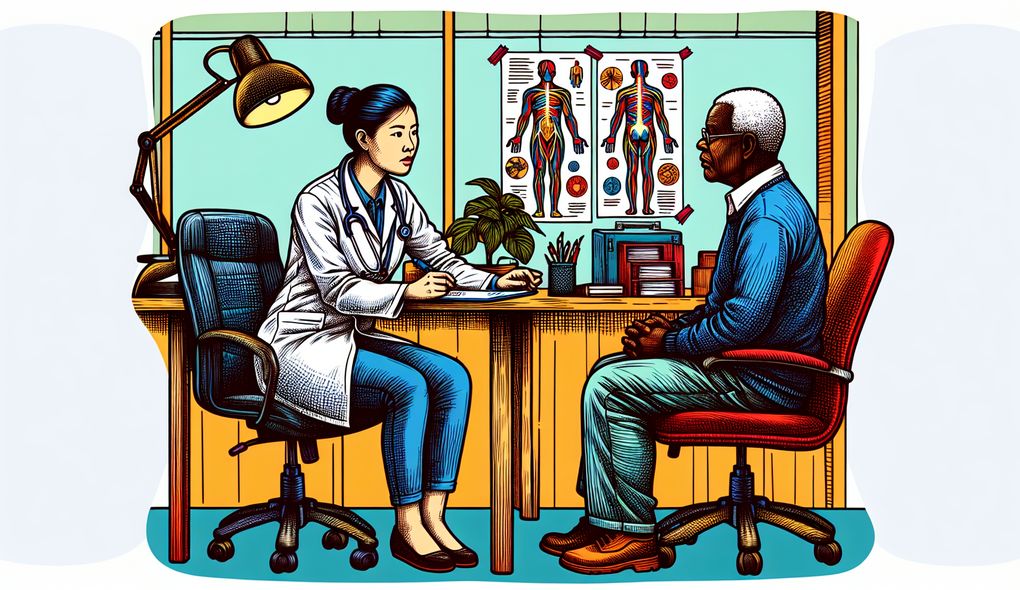How do you prioritize and manage your workload as a senior pain management physician?
SENIOR LEVEL

Sample answer to the question:
As a senior pain management physician, prioritizing and managing my workload is crucial to ensure optimal patient care and a smooth workflow. I start by assessing the urgency and complexity of each patient's case. I prioritize patients who require immediate intervention or have complex medical conditions. I create a schedule that allows for enough time to thoroughly evaluate each patient and develop comprehensive treatment plans. I also delegate tasks to my team, such as medical assistants and nurses, to ensure efficiency. I use electronic medical record systems to stay organized and track patient progress. Regular team meetings and communication help us stay coordinated and address any issues promptly. Lastly, I set aside time for continuing education to stay updated with advancements in pain management and continuously improve my skills.
Here is a more solid answer:
As a senior pain management physician, effectively prioritizing and managing my workload is essential. I start each day by reviewing my patient list and assessing their needs. I prioritize patients with acute or severe pain, as well as those with complex medical conditions. For urgent cases, I ensure that I have enough time in my schedule to thoroughly evaluate the patient and develop a comprehensive treatment plan. To manage my time efficiently, I make use of electronic medical record systems to stay organized and track patient progress. I also delegate tasks to my team, such as medical assistants and nurses, to maximize productivity. Regular team meetings help us stay coordinated and address any challenges that arise. Additionally, I dedicate time to continuing education to stay updated on the latest advancements in pain management. Attending conferences, participating in webinars, and reading medical journals allow me to integrate new techniques into my practice and improve patient outcomes.
Why is this a more solid answer?
The solid answer provides specific details and examples from the candidate's experience, demonstrating their ability to prioritize and manage their workload effectively. It addresses the key evaluation areas of prioritization, time management, team coordination, and continuing education. However, it could be improved by including more information about how the candidate communicates with their team and how they handle unexpected changes in workload.
An example of a exceptional answer:
As a senior pain management physician, I have developed a comprehensive approach to prioritize and manage my workload effectively. Firstly, I prioritize patients based on the urgency and complexity of their conditions. Patients requiring immediate intervention or with complex medical histories are given top priority. Secondly, I optimize my schedule by allocating sufficient time for each patient evaluation and treatment planning. This ensures that I can provide thorough care without rushing. Additionally, I employ electronic medical record systems to stay organized and track patient progress. This allows me to access essential information efficiently and avoid any delays. To coordinate with my team, I hold regular meetings to discuss patient cases, share updates, and address any challenges. Effective communication and collaboration are key in providing seamless patient care. Furthermore, I understand the importance of continuing education in a rapidly evolving field. I dedicate time to attend conferences, participate in webinars, and read scholarly articles to stay up-to-date with the latest advancements in pain management. This enables me to incorporate evidence-based practices into my treatment plans. Overall, my systematic approach to prioritization, effective time management, strong team coordination, and dedication to continuous learning contribute to my successful management of workload as a senior pain management physician.
Why is this an exceptional answer?
The exceptional answer provides a detailed and comprehensive response to the question, highlighting the candidate's expertise in prioritizing and managing their workload as a senior pain management physician. It includes specific strategies used by the candidate, such as prioritizing patients based on urgency and complexity, optimizing their schedule, utilizing electronic medical record systems, and holding regular team meetings. The answer also emphasizes the candidate's commitment to continuing education and staying updated with the latest advancements in pain management. Overall, the answer demonstrates a high level of proficiency in managing workload effectively.
How to prepare for this question:
- 1. Familiarize yourself with the key responsibilities mentioned in the job description. Understand the importance of prioritization, time management, team coordination, and continuous learning in the role of a senior pain management physician.
- 2. Reflect on your past experiences in managing a busy workload. Identify specific examples where you effectively prioritized tasks, managed your time efficiently, coordinated with a team, and engaged in continuous learning.
- 3. Research and stay up-to-date with the latest advancements in pain management. Familiarize yourself with current treatment approaches and techniques.
- 4. Practice communicating your strategies for workload management in a clear and concise manner. Use specific examples from your experience to illustrate your points.
- 5. Attend conferences or webinars related to pain management to enhance your knowledge and demonstrate your commitment to continuous learning in the field.
What are interviewers evaluating with this question?
- Prioritization
- Time management
- Team coordination
- Continuing education

